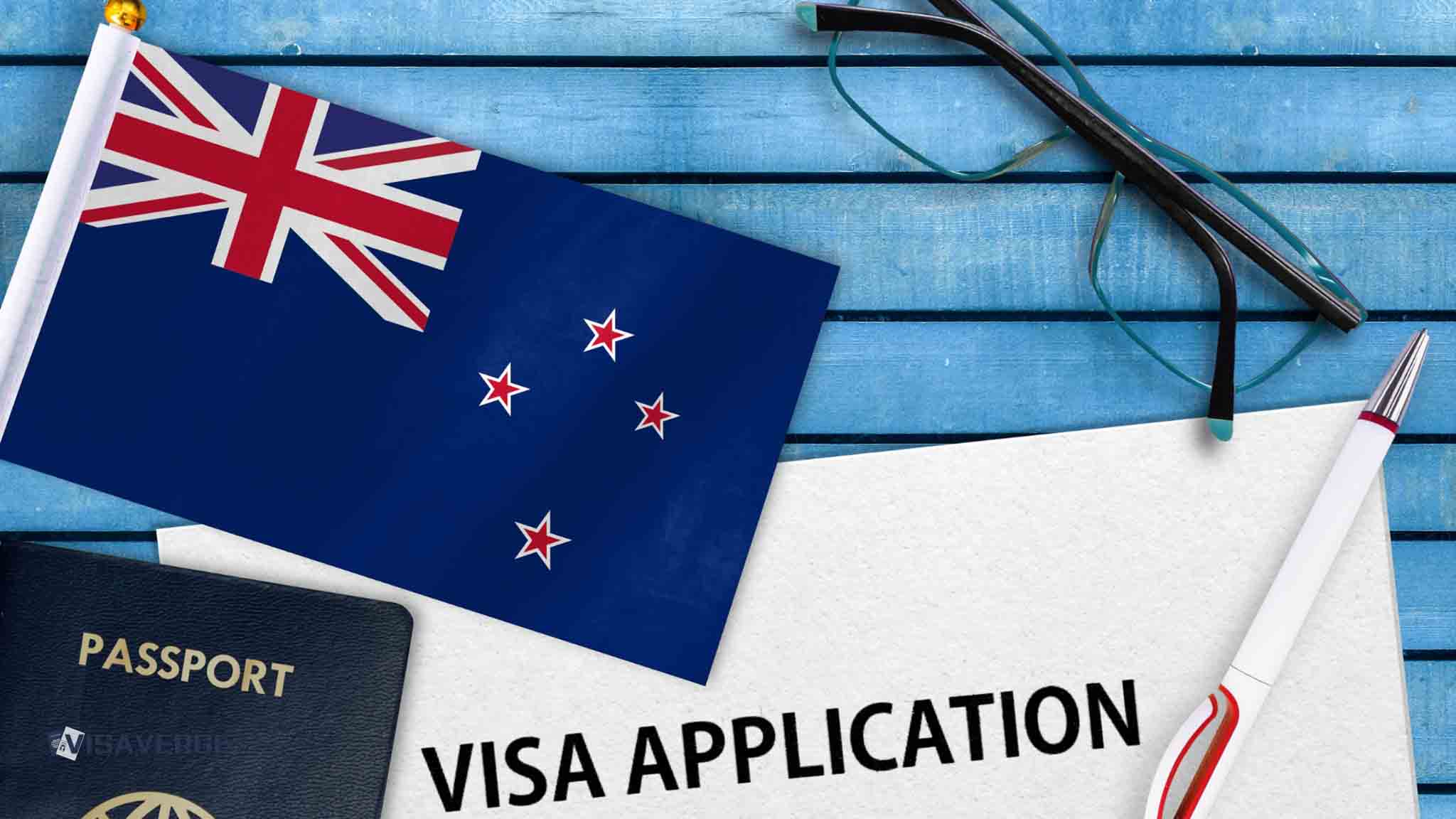Key Takeaways:
- English proficiency is crucial for New Zealand visas, with IELTS, TOEFL, and PTE Academic being common assessments.
- Score requirements differ by visa category; exemptions apply for certain nationalities or education backgrounds.
- Language tests usually last two years; exemptions demand valid proof, affecting visa eligibility and application processes.
Understanding English language proficiency requirements is crucial for individuals considering immigration to New Zealand 🇳🇿. Language proficiency can significantly impact an applicant’s eligibility for various visa categories, with the International English Language Testing System (IELTS), Test of English as a Foreign Language (TOEFL), and Pearson Test of English Academic (PTE Academic) being the most commonly recognized assessments. Additionally, English exemptions may apply to certain candidates, depending on their nationalities or professional backgrounds. This article thoroughly examines these aspects, offering a comprehensive guide to applicants seeking clarity on these critical requirements.
IELTS, TOEFL, and PTE Academic Scores for New Zealand Visas
Understanding the required English proficiency scores is fundamental to successfully navigating New Zealand’s visa application process. Different visa categories have distinct score requirements, reflecting the varying language demands of each visa type, from skilled work to study and residency.
Study Visas
For prospective international students aiming to study in New Zealand, the English proficiency requirements often depend on the education provider. However, a general benchmark is set. For instance, most universities require a minimum IELTS score of 6.0 overall, with no band lower than 5.5. Equivalent TOEFL and PTE Academic scores might range around 80 (Internet-based TOEFL) and 50 for PTE Academic, ensuring a reasonable level of comprehension for academic pursuits.
Skilled Migrant Category (SMC)
Under the Skilled Migrant Category, language proficiency is pivotal. Applicants usually need an overall band score of 6.5 in IELTS, aligning with New Zealand’s focus on employing proficient English speakers to meet the country’s skill shortage. The TOEFL equivalent would generally be 90, and for PTE Academic, a score of around 58 might be essential. This ensures that migrants can adequately fulfill their professional roles in an English-speaking environment.

Work Visas
Temporary work visas, such as the Essential Skills Work Visa, also necessitate certain language proficiency levels. Generally, an overall IELTS score of 5 is required, balancing between communicative efficiency and accessibility to skilled labor. TOEFL and PTE Academic scores correspondingly required are around 60 and 42 respectively.
Family Visas
For those applying under family categories, such as the Partner of a New Zealander Resident Visa, English language prerequisites might be less stringent. Here, partners can demonstrate communication ability via an overall IELTS band score of 4.5. The flexibility afforded in this category recognizes the varied backgrounds and circumstances applicants might come from.
Resident Visas
For residence classes such as the Residence from Work Visa, at a minimum, a general IELTS score of 5 is considered satisfactory. This is reflective of the need for residents to integrate smoothly into the community, combining reasonable English proficiency that supports daily interactions and professional engagements alike.
English Exemptions
There are specific circumstances where English exemptions may apply, primarily to applicants from English-speaking countries or those who have pursued higher education in English. These exemptions aim to simplify the process for those who can inherently demonstrate their English language capabilities.
Applicants from the following predominantly English-speaking countries often qualify for exemptions:
– Australia 🇦🇺
– Canada 🇨🇦
– Ireland 🇮🇪
– United Kingdom 🇬🇧
– United States 🇺🇸
These individuals may not be required to provide standardized test scores as proof of language proficiency, given their likely extensive exposure to and use of English.
Moreover, those who have gained tertiary qualifications through English-medium courses in recognized institutions might also be exempted. This policy reflects New Zealand’s objective to streamline the immigration process for individuals whose education has been structured in English.
Application Process
The approach to demonstrating English proficiency begins with the selection of an appropriate test, based on visa category requirements. It’s advisable for applicants to check specific score requirements and exemptions on the official New Zealand Immigration website here. Candidates can prepare by enrolling in IELTS, TOEFL, or PTE Academic exams, ensuring comprehensive language development across reading, writing, listening, and speaking components.
Once test scores are obtained or an exemption is confirmed, applicants must include relevant documentation in their visa applications. This typically includes authenticated test results or substantiating evidence of exemption qualifications, translating into smoother navigation through the verification phase.
Processing Times and Fees
While language competency is a stepping-stone in the application process, each visa has specific processing times and associated fees. As reported by VisaVerge.com, applicants should be aware that these costs and durations can vary considerably. For instance, obtaining an IELTS test can cost between NZD 385 and NZD 416, depending on the testing center. The visa processing fee structure is similarly variable, with different rates applying to the distinct visa types and processing speeds impacting final timelines.
Understanding Validity and Renewals
Language test results have a specified validity period, typically spanning two years from the date of issue. This means applicants must ensure their scores remain valid throughout the visa application process. Similarly, if a visa extension is desired, previous scores may need reevaluation should the validity lapse.
Pathway to Permanent Residency
Proficiency in English is frequently a stepping-stone towards achieving permanent residency. Particularly under the Skilled Migrant Category, successful applicants can eventually apply for residency, provided they meet the skill and language competency requirements. However, transition conditions into long-term residency are context-specific and frequently tied to New Zealand’s immigration policies and demand for skills.
Common Misconceptions
A prevalent misconception is that exemptions are universally applied without verification. However, applicants must provide sufficient proof of exemption eligibility, such as certificates or references, to affirm their claims. Another misconception revolves around automatic test waivers based on past residency or visas; these often still require proof of continuous relevant language engagement.
Conclusion: Pros and Cons
Understanding English proficiency requirements harbors potential benefits and challenges alike. On the positive side, proficiency requirements ensure the integration of capable individuals into society, promoting seamless communication within New Zealand’s multicultural fabric. Nonetheless, stringent language prerequisites can pose challenges for non-native speakers and afford less linguistic-flexible pathways to entry.
For comprehensive guidance, applicants are encouraged to engage resources like VisaVerge.com, obtain preparatory materials, consult with immigration advisors, and remain abreast of policy updates, ensuring well-rounded readiness for a prospective application.
In summary, for aspiring New Zealand immigrants, aligning their language skills with visa requirements is an indispensable element of their journey. Awareness of score benchmarks, exemption circumstances, and associated processing dynamics lays the groundwork for forging a successful immigration path.
Still Got Questions? Read Below to Know More:

Can my work experience in an English-speaking company exempt me from language tests for New Zealand visas
When applying for a New Zealand visa, particularly the Skilled Migrant Category Resident Visa, proof of English language proficiency is typically required. While work experience in an English-speaking company can demonstrate your language abilities, it does not automatically exempt you from taking an English language test. The standard requirement usually involves a formal test such as the IELTS, TOEFL, or PTE Academic. According to Immigration New Zealand, “Applicants under the Skilled Migrant Category must meet the minimum standard of English for this visa.”
However, there are certain circumstances where Immigration New Zealand may waive the language test requirement. These include:
- Completing secondary or tertiary education mainly in English in specific countries (such as the UK, USA, Australia, Canada, Ireland, or New Zealand).
- Having worked in skilled employment in New Zealand for at least 12 months.
Your work experience in an English-speaking company might be considered during the visa application process, but it is not a formal exemption. For more detailed information about language requirements and exceptions, visit the Immigration New Zealand official website. This website provides comprehensive guidelines on language testing standards and any possible exemptions relevant to various visa categories. It’s essential to consult these resources or discuss with an immigration advisor to understand the specific requirements for your situation.
How does the English proficiency requirement for New Zealand compare to other countries like Canada or Australia
New Zealand, Canada, and Australia all have English proficiency requirements for immigration, but they differ slightly in their criteria. New Zealand’s immigration system primarily requires proof of English proficiency through the International English Language Testing System (IELTS), with a minimum overall score generally set at 6.5. This requirement may vary depending on the visa category you are applying for. For instance, the Skilled Migrant Category requires the applicant and accompanying family members to meet this score. Additional details can be found on the New Zealand Immigration Website.
In comparison, Canada uses the Canadian Language Benchmark (CLB) system to assess English proficiency. For the Express Entry program, applicants often need a minimum CLB level of 7, which corresponds to an IELTS score of 6.0 in all four language skill areas: speaking, listening, reading, and writing. Different visa categories might require different proficiency levels. Further information can be accessed through Immigration, Refugees and Citizenship Canada (IRCC).
Australia requires applicants under its General Skilled Migration program to achieve at least a “Competent English” level, usually demonstrated by an IELTS score of at least 6.0 in each of the four skill areas without a requirement for an overall score. Other tests like the TOEFL iBT and PTE Academic are also accepted. Detailed guidance and updates can be checked on the Department of Home Affairs Website. Thus, while all these countries stress the importance of English proficiency, the specific test scores required and accepted tests vary, making it essential for applicants to carefully assess the requirements for their intended immigration destination.
“How can I apply for a U.S. work visa?”
Applying for a U.S. work visa involves several steps, and the type of visa you need depends on the job and your qualifications. The most common work visas are H-1B for skilled workers, L-1 for intra-company transferees, and O-1 for individuals with extraordinary abilities. To begin the process:
- Determine the Appropriate Visa Category: Find the visa category that matches your situation. You can explore different types at the U.S. Citizenship and Immigration Services (USCIS) website.
-
Employer Sponsorship: For most work visas, you need a job offer from a U.S. employer. “The employer acts as your sponsor and must file a petition on your behalf.” The employer submits Form I-129, Petition for a Nonimmigrant Worker, to the USCIS.
-
Apply for the Visa: Once USCIS approves the petition, you’ll need to apply for a visa at a U.S. Embassy or Consulate. This involves submitting Form DS-160, a visa application fee, and an interview. You can learn more about the process on the U.S. Department of State website.
Also, remember to prepare necessary documents like your passport, proof of employment, and any other required documents specific to your visa type. Check the specific requirements and procedures at the official Consular Electronic Application Center (CEAC). Always double-check the latest information and updates from these resources, as immigration policies can change.
What happens if my English test scores expire during my visa application process
If your English test scores, such as IELTS or TOEFL, expire during your visa application process, it can affect the outcome of your application. Typically, immigration authorities require that test scores be valid at the time of application submission. If the scores expire after you’ve submitted your application, they may still be considered valid for the application process. However, if your application is incomplete or if additional processing delays occur, you may be asked to retake the test and submit new scores.
It’s crucial to check the specific requirements for the visa you are applying for. Different countries and visa types might have varied rules regarding the validity of English proficiency scores:
- Australia: For most visa applications, scores must be valid at the time of lodgment. For specific details, you can refer to the Department of Home Affairs website.
- Canada: Your test results must be valid (less than two years old) when your application is received. More information is available on the Immigration, Refugees and Citizenship Canada (IRCC) page.
- United States: Specific programs like H-1B may require valid scores, but requirements vary. Visit the U.S. Citizenship and Immigration Services (USCIS) for guidance.
To avoid issues, it is advisable to ensure your scores remain valid for the duration of the assessment process. If your scores are close to expiration, consider retaking the test before your current scores expire. This proactive approach “helps prevent unnecessary delays or complications.” Always keep an eye on official resources and announcements to stay updated on any changes regarding language proficiency requirements.
How can I prepare for the language test if I’m not confident in English
Preparing for an English language test can feel challenging, but with the right approach and resources, you can improve your confidence and skills. To begin, it’s helpful to understand which language tests are accepted by immigration authorities in your country of choice. For example, the International English Language Testing System (IELTS) and the Test of English as a Foreign Language (TOEFL) are commonly accepted. Familiarize yourself with the format and structure of these tests, as well as the required scores for immigration purposes. For more specific information, you can visit the IELTS official website or the TOEFL website.
Here are some actionable steps to improve your English skills:
- Practice Regularly: Dedicate time every day to practice reading, writing, listening, and speaking. Consistency is key.
- Use Language Learning Apps: Apps like Duolingo or Rosetta Stone offer structured lessons and can be accessed anywhere.
- Engage with English Media: Watch movies, listen to podcasts, or read books in English. This will help you get used to different accents and vocabularies.
- Join English Classes or Groups: Enroll in a language course or join conversation groups. Speaking with others can greatly boost your confidence.
- Take Practice Tests: Many official sites offer practice tests. This helps familiarize you with the test format and timing.
The U.S. Citizenship and Immigration Services (USCIS) website and the Canadian Immigration and Citizenship website provide useful resources and information on language requirements. Remember, “perseverance is not a long race; it is many short races one after the other.” Focus on small, consistent efforts to steadily build your language skills and prepare effectively for the test.
Are there free or low-cost resources available for improving my English before taking the IELTS or TOEFL
Yes, there are several free or low-cost resources available to help you improve your English skills before taking the IELTS or TOEFL exams. Practicing English can be vital for your success, especially since these exams evaluate your proficiency in reading, writing, speaking, and listening. Here are some options to consider:
- Online Courses and Websites: Websites like Coursera, FutureLearn, and edX offer free online courses to improve your English language skills. You can find courses specifically focused on preparing for IELTS or TOEFL.
-
Local Libraries and Community Centers: Many libraries and community centers offer free English language classes or conversation groups. They are great resources for meeting others and practicing speaking skills in a real-world setting.
-
YouTube and Podcasts: There are numerous educational channels, like “BBC Learning English” and “EnglishClass101”, which provide free lessons that help improve English grammar, vocabulary, and pronunciation. Similarly, podcasts like “The English We Speak” can be helpful for improving listening skills.
For additional practice resources, apps such as Duolingo and Memrise offer interactive lessons at no cost and are enjoyable ways to improve your English proficiency on the go. “It’s important to actively use these resources in various contexts to gain confidence in speaking and listening.”
Lastly, you might want to visit the British Council or ETS TOEFL websites for official sample questions and preparation materials that are often free or available at a low cost. These organizations provide specific resources tailored for test-takers to familiarize themselves with the exam format and practice effective test strategies.
Learn today
-
International English Language Testing System (IELTS): A standardized test assessing English proficiency for non-native speakers, often required for visa applications.
-
Exemption: A waiver from English language test requirements based on specific conditions, like nationality or educational background.
-
Skilled Migrant Category (SMC): A visa type for immigrants whose skills are in demand, requiring higher English proficiency.
-
Validity Period: The duration for which a language test score is considered valid (typically two years) for visa applications.
-
Pearson Test of English Academic (PTE Academic): An English language test assessing proficiency, recognized for New Zealand visa applications like IELTS and TOEFL.








